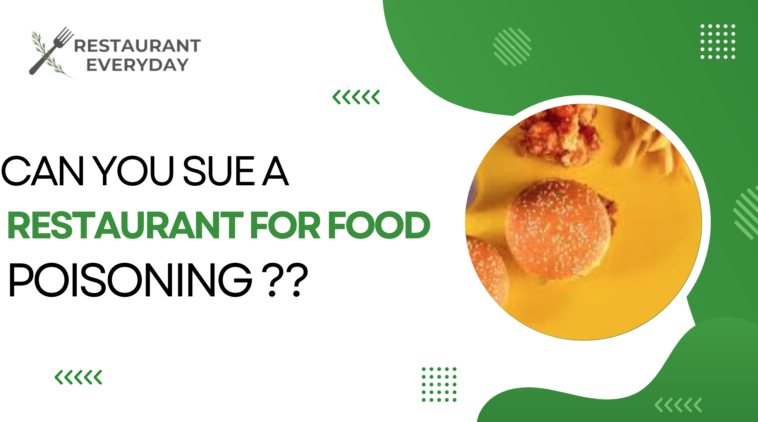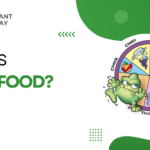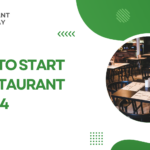Navigating the Legal Landscape: Can You Sue a Restaurant for Food Poisoning?
Introduction:
Embarking on a culinary adventure is an experience many of us relish, seeking delight in the flavors and aromas served at our favorite restaurants. However, what happens when a seemingly enjoyable dining experience takes an unexpected turn, leaving you grappling with the unpleasant aftermath of food poisoning? In such instances, the question arises: Can you sue a restaurant for food poisoning?
As we delve into this complex and critical issue, this blog aims to shed light on the legal intricacies surrounding foodborne illnesses and the potential recourse available to consumers. From understanding the burden of proof to exploring the responsibilities of restaurants in ensuring food safety, join us on a journey through the legal landscape of seeking justice for food poisoning incidents.
Discover the factors that come into play, learn about your rights as a consumer, and gain insights into the steps to consider if you face the unfortunate consequences of a tainted meal.
The Basics of Food Poisoning Lawsuits
Understanding the basics of food poisoning lawsuits is crucial for those seeking recourse and justice after a culinary mishap.
1. Establishing Negligence:
One of the key elements in a food poisoning lawsuit is establishing negligence on the restaurant’s part. This involves proving that the establishment failed to uphold the standard duty of care in preparing, handling, or serving food, leading to the contamination that caused illness.
2. Identifying the Causative Agent:
Pinpointing the specific pathogen responsible for the foodborne illness is essential. This requires medical documentation linking the disease to food consumption from the implicated restaurant. Common culprits include bacteria like Salmonella or E. coli, viruses, parasites, and toxins.
3. Proving Causation:
Demonstrating a direct link between the contaminated food and the resulting illness is critical. This often involves presenting evidence such as medical records, laboratory reports, and a timeline of events to establish a causal connection beyond a reasonable doubt.
4. Understanding Strict Liability:
In some jurisdictions, strict liability laws may apply to food poisoning cases. This means the restaurant can be held responsible for the illness regardless of whether negligence is proven. Strict liability is typically based on the concept that restaurants are inherently responsible for the safety of the food they serve.
5. Documenting Damages:
Successful food poisoning claims often require documentation of damages incurred due to the illness. This may include medical bills, lost wages, and other related expenses. The severity and duration of the disease play a crucial role in determining the extent of damage.
6. Timely Reporting and Legal Statutes:
Reporting the incident promptly to health authorities is crucial for public safety and potential legal action. It’s important to be aware of the statutes of limitations governing food poisoning lawsuits, as delays in filing a claim could impact its viability.
Navigating the complexities of a food poisoning lawsuit requires a combination of legal expertise, medical evidence, and a thorough understanding of local regulations. This blog series will delve deeper into each aspect, providing valuable insights for those considering legal action after a foodborne illness. Stay tuned for a comprehensive exploration of the legal avenues available to individuals seeking justice and accountability after a tainted meal.
Establishing Liability for Food Poisoning: Unraveling the Legal Web
Food poisoning can turn a delightful dining experience into a nightmare, leaving individuals grappling with not only the physical toll of illness but also the question of who bears responsibility for the harm caused. In legal action, establishing liability for food poisoning involves navigating a complex web of factors and legal principles. Here’s a closer look at the key elements that contribute to holding a restaurant accountable:
1. Duty of Care:
Restaurants owe patrons a duty of care to provide safe and hygienic food. Establishing liability begins with demonstrating that the restaurant was responsible for ensuring the food’s safety.
2. Negligence:
Negligence forms the crux of many food poisoning lawsuits. To prove negligence, one must establish that the restaurant breached its duty of care by failing to adhere to industry standards or violating health codes. This breach must directly lead to contamination, causing illness.
3. Standard Operating Procedures:
Scrutinizing the restaurant’s standard operating procedures is vital. This involves assessing food handling, storage practices, employee training, and hygiene standards. Any deviation from established protocols can strengthen the negligence case.
4. Documentation of Contamination:
Pinpointing the contaminant responsible for the illness is a crucial step. Laboratory reports, medical records, and expert testimony linking the disease to the specific pathogen are instrumental in establishing a causal connection.
5. Proximate Cause:
Demonstrating that the restaurant’s actions were the proximate cause of the illness is essential. This involves establishing a direct link between the contaminated food served by the restaurant and the resulting disease, ruling out alternative causes.
6. Strict Liability:
In some jurisdictions, strict liability may apply to food poisoning cases. Under strict liability, the restaurant can be held responsible for the harm caused by the contaminated food, regardless of negligence. This emphasizes the restaurant’s inherent responsibility for its products’ safety.
7. Evidence of Damages:
Documenting the damages incurred due to the foodborne illness strengthens the case. Medical bills, pharmacy receipts, and records of lost wages provide tangible evidence of the impact on the victim’s life.
8. Timely Reporting:
Timely reporting of the incident to health authorities can bolster the legal case. It contributes to public safety and establishes a record of the contamination, aiding in the investigation.
9. Statutes of Limitations:
Understanding and adhering to statutes of limitations is crucial. Failing to file a lawsuit within the prescribed timeframe can bar legal action, underscoring the importance of prompt and informed decision-making.
Establishing liability for food poisoning is a multifaceted process that demands a comprehensive understanding of legal nuances, health regulations, and the intricacies of the restaurant industry.
In the next segment of this series, we will delve deeper into the role of negligence and provide specific examples that illustrate how these principles apply in real-world scenarios. Stay tuned for a closer examination of the legal intricacies surrounding failure in food poisoning cases.
Defending Against Food Poisoning Claims: Exploring Restaurant Strategies
When faced with a food poisoning claim, restaurants may employ a variety of defences to challenge allegations of negligence or strict liability. Understanding these potential defences is crucial for restaurant owners and patrons seeking clarity after a tainted dining experience. Here’s a closer look at the strategies restaurants might employ:
1. Lack of Causation:
Restaurants may argue that insufficient evidence links the alleged contamination to the food they serve. Establishing a direct causal connection between the restaurant’s actions and the patron’s illness is pivotal for a successful food poisoning claim.
2. Intervening Causes:
Restaurants might contend that factors beyond their control, known as intervening causes, contributed to the patron’s illness. This could include the patron’s pre-existing health conditions, consumption of additional meals, or exposure to contaminants elsewhere.
3. Adherence to Industry Standards:
Demonstrating compliance with industry standards and health codes can serve as a defence. If the restaurant can show that it followed established food handling, storage, and preparation protocols, it may argue that it fulfilled its duty of care.
4. Expiration of Shelf Life:
Some foodborne illnesses may arise from consuming expired or improperly stored food. Restaurants may assert that patrons assumed responsibility by consuming food beyond its recommended shelf life or not adhering to storage instructions.
5. Contributory Negligence:
Restaurants might assert that the patron’s actions contributed to the illness. If a patron mishandled food, failed to inquire about ingredients due to allergies, or neglected proper hygiene, the restaurant may argue contributory negligence on the part of the patron.
6. Waivers and Disclaimers:
In some cases, restaurants may include waivers or disclaimers on menus or receipts, specifying that patrons consume food at their own risk. While the effectiveness of such releases can vary, they may serve as a component of the restaurant’s defence.
7. Insufficient Damages:
Restaurants may challenge the extent of damages claimed by the patron. If the patron did not seek timely medical attention, failed to follow prescribed treatments, or lacked documentation of incurred expenses, the restaurant may question the validity of the damages claimed.
8. Government Inspections and Compliance:
Restaurants may use evidence of regular government inspections, clean health department records, and compliance with food safety regulations to counter negligence claims. Demonstrating a commitment to regulatory standards can be a powerful defence.
9. Awareness and Correction:
If a restaurant becomes aware of potential issues, taking swift corrective action can be a defence. This may involve removing implicated items from the menu, conducting internal investigations, and implementing enhanced food safety measures.
Navigating food poisoning claims requires a nuanced understanding of legal defences and the ability to present a compelling case. In the next segment, we’ll delve into real-world examples of food poisoning lawsuits and the application of these defences, providing insights into the complexities of the legal landscape. Stay tuned for a closer examination of how these defences play out in actual cases.
Steps to Take If You Get Sick
Responding to Food Poisoning: Practical Steps to Take If You Get Sick
Discovering that your recent dining experience has left you grappling with food poisoning can be distressing, but taking prompt and informed action is crucial for both your health and any potential legal recourse. Here are the essential steps to consider if you suspect you’ve fallen victim to foodborne illness:
1. Seek Medical Attention:
Priority number one is your health. If you experience severe symptoms such as persistent vomiting, dehydration, high fever, or bloody stools, seek immediate medical attention. A healthcare professional can diagnose the illness, prescribe necessary treatments, and document your condition.
2. Retain Evidence:
Preserve any evidence related to the meal. Record what you ate, where you dined, and when symptoms first appeared. If possible, store a sample of the suspect food in a sealed container. These details can be valuable if you decide to pursue legal action.
3. Report the Incident:
Inform the relevant health authorities. Report your illness to your local health department. This contributes to public safety and creates an official record of the incident, which can be crucial for investigations and potential legal proceedings.
4. Document Symptoms and Treatment:
Maintain a detailed record of your symptoms and medical treatments. Please note when symptoms started, their progression, and any medications or treatments prescribed. This documentation is crucial evidence if you decide to pursue a food poisoning claim.
5. Contact the Restaurant:
Reach out to the restaurant where you dined. Notify them of your illness and inquire if others have reported similar issues. Be calm but assertive in expressing your concerns—request information about their food safety protocols and any recent health inspections.
6. Preserve Receipts and Records:
Keep copies of receipts, credit card statements, and any relevant records. These documents can be important for establishing your meal’s date, time, and location. They also serve as evidence of your patronage at the implicated establishment.
7. Photograph Visible Symptoms:
Document visible symptoms with photographs. Take clear pictures if your symptoms include rashes, swelling, or other visible signs. These visuals can bolster your case and provide additional evidence of the impact of the foodborne illness.
8. Consult with Legal Counsel:
If you’re considering legal action, consult an attorney experienced in food poisoning cases. They can provide guidance on the viability of your case, advise on necessary documentation, and navigate the legal complexities associated with pursuing a lawsuit.
9. Be Mindful of Statutes of Limitations:
Understand the statutes of limitations in your jurisdiction. Timely action is crucial, as delaying the reporting or filing of a claim can impact its viability. Consult with legal counsel to ensure compliance with relevant timelines.
10. Stay Informed:
Stay informed about food recalls and health advisories. Monitor public health announcements and recall notices, as this information may strengthen your case and contribute to a broader understanding of potential risks associated with the implicated food.
Remember, each case is unique, and consulting with a healthcare professional and legal counsel tailored to your circumstances is paramount. By taking these proactive steps, you safeguard your well-being and position yourself to make informed decisions regarding potential legal action in the aftermath of food poisoning.
Conclusion: Can you Sue a Restaurant for Food Poisoning
In the aftermath of a distressing about of food poisoning, the pursuit of legal recourse becomes a crucial step towards justice and accountability. Time-sensitive actions, such as seeking medical attention, reporting the incident to health authorities, and documenting damages, lay the foundation for potential legal action.
Understanding the legal principles of negligence, strict liability, and the possible defences employed by restaurants is essential for those contemplating the legal path. Consulting with an experienced attorney becomes a guiding beacon in navigating the complexities of a food poisoning claim, increasing the likelihood of a favourable outcome.
By taking these proactive measures, affected individuals safeguard their own well-being and contribute to public safety and the broader effort to uphold food safety standards within the community. Seeking legal recourse is not just a personal pursuit of justice but a collective step towards fostering a safer dining environment for everyone.




